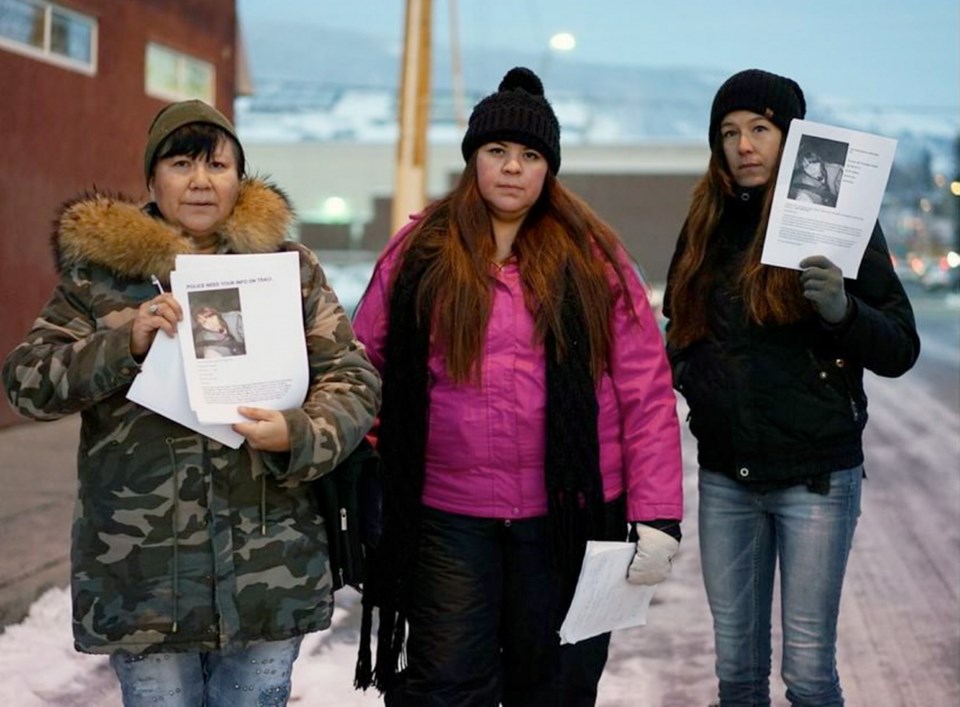VANCOUVER — Women disappointed with how the Canadian justice system handles cases of violence against vulnerable women plan to rally this week outside a Port Coquitlam courthouse where a man charged with assaulting sex workers is on trial.
Angela Marie MacDougall, executive director of Battered Women’s Support Services, said several rallies will be held by groups determined to seek justice for women who do sex work and experience violence, and Indigenous women, for whom the rate of homicide is nearly six times that of non-Indigenous women.
On Monday, Curtis Wayne Sagmoen, born in 1980, will appear in provincial court in Port Coquitlam for a five-day trial on an assault charge related to an alleged 2013 attack on a sex worker in Maple Ridge.
This month, he will also fix a date for a trial in Vernon on assault charges, and he has another trial this year on charges of disguising his face with the intent to commit an offence, discharging a firearm while reckless, using a firearm to commit an indictable offence, uttering threats and possessing a controlled substance. None of the charges has been proven in court.
In 2017, RCMP launched a massive search of Sagmoen’s parents’ farm near Salmon Arm, where they had found the remains of a missing woman, 18-year-old Traci Genereaux, who struggled with addiction and at times did sex work. Sagmoen has not been charged in connection with the remains on the farm.
“They all matter, but this one [case] matters in particular because we’re talking about a very specific portion of people that experience a particular vulnerability in Canadian society,” MacDougall said.
MacDougall said she hopes the rallies show the justice system that people are watching out for vulnerable women and remind Canadians that violence against them is an ongoing concern. “We seek to remind people that we are only as safe as the most vulnerable of our society,” she said.
Jody Leon of the Secwepemc Nation, an advocate for murdered and missing Indigenous women, is helping organize the rallies and travelling with a group of women from the Salmon Arm area to participate.
She said they are seeking resolution for Genereaux and for the families of four other women who have gone missing in the area over the past three years: Deanna Wertz, Ashley Simpson, Caitlin Potts and Nicole Bell. “We want to see that the RCMP are actively looking,” she said. “Where are the answers for these families? Where is the justice for Traci?
“If we don’t make a stand, that type of behaviour — thinking about things like [serial killer William] Pickton — we never want to see a repeat of that,.”
The rallies start at 9 a.m. Monday and will continue for the duration of Sagmoen’s trial, which a rotating group of activists will observe.
That it took six years for Sagmoen’s Maple Ridge charges to reach trial speaks to the need for RCMP to improve its investigative techniques and treatment of such cases, MacDougall said.
She said it wasn’t until Leon and her group started advocating for Sagmoen’s alleged victims that police took the Maple Ridge incident seriously.
“That should not be the case,” she said. “We have to continue using all the informal and formal methods that we can to hold the system accountable, because the system will not hold itself accountable when it comes to investigating and prosecuting these kinds of gender-based violence.”
MacDougall said recommendations from former B.C. attorney-general Wally Oppal’s Missing Women Commission of Inquiry were designed to address institutional failings like those she is rallying against, but didn’t go far enough.



